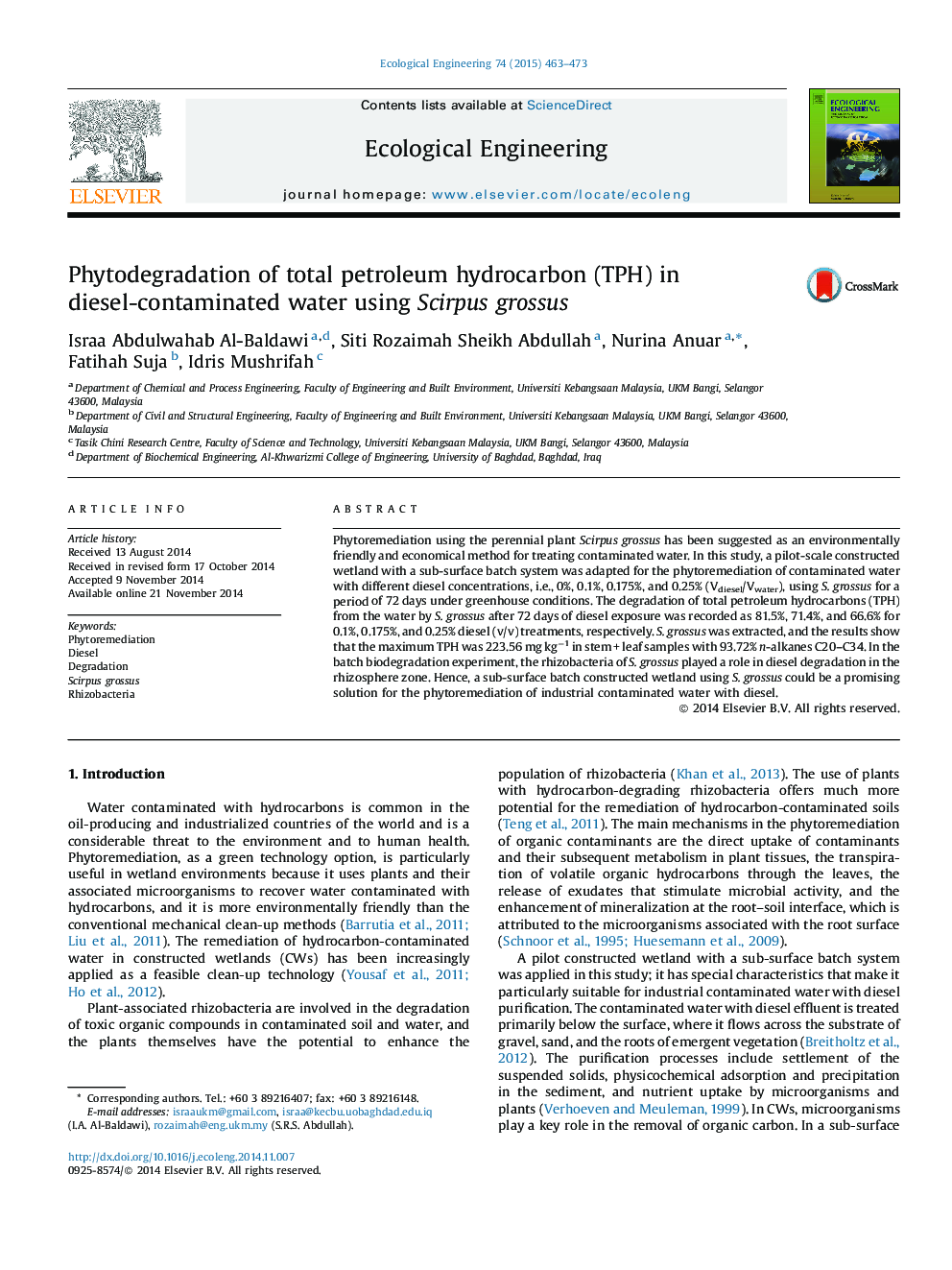| Article ID | Journal | Published Year | Pages | File Type |
|---|---|---|---|---|
| 4389340 | Ecological Engineering | 2015 | 11 Pages |
•Assessment of the roles of plants and rhizobacteria in phytoremediation technology.•Plant tissue showed adsorption of diesel.•Diesel was attached outside the plant tissue and did not accumulate inside tissues.•Plant-associated rhizobacteria can enhance contaminant degradation.•The isolated rhizobacteria can degrade C8–C32 in diesel to smaller molecules.
Phytoremediation using the perennial plant Scirpus grossus has been suggested as an environmentally friendly and economical method for treating contaminated water. In this study, a pilot-scale constructed wetland with a sub-surface batch system was adapted for the phytoremediation of contaminated water with different diesel concentrations, i.e., 0%, 0.1%, 0.175%, and 0.25% (Vdiesel/Vwater), using S. grossus for a period of 72 days under greenhouse conditions. The degradation of total petroleum hydrocarbons (TPH) from the water by S. grossus after 72 days of diesel exposure was recorded as 81.5%, 71.4%, and 66.6% for 0.1%, 0.175%, and 0.25% diesel (v/v) treatments, respectively. S. grossus was extracted, and the results show that the maximum TPH was 223.56 mg kg−1 in stem + leaf samples with 93.72% n-alkanes C20–C34. In the batch biodegradation experiment, the rhizobacteria of S. grossus played a role in diesel degradation in the rhizosphere zone. Hence, a sub-surface batch constructed wetland using S. grossus could be a promising solution for the phytoremediation of industrial contaminated water with diesel.
